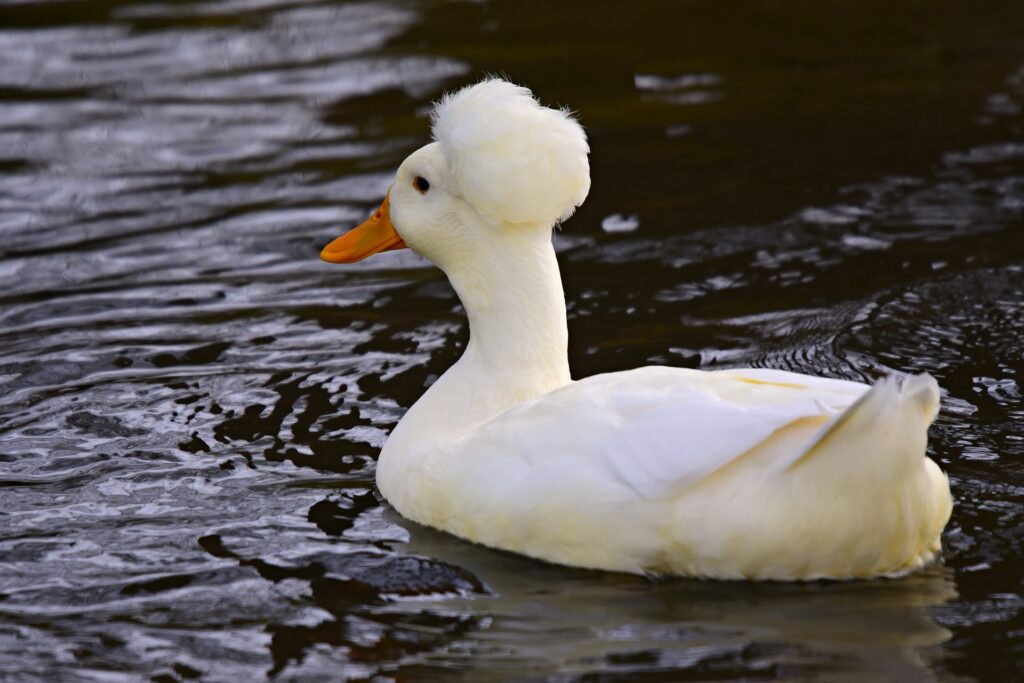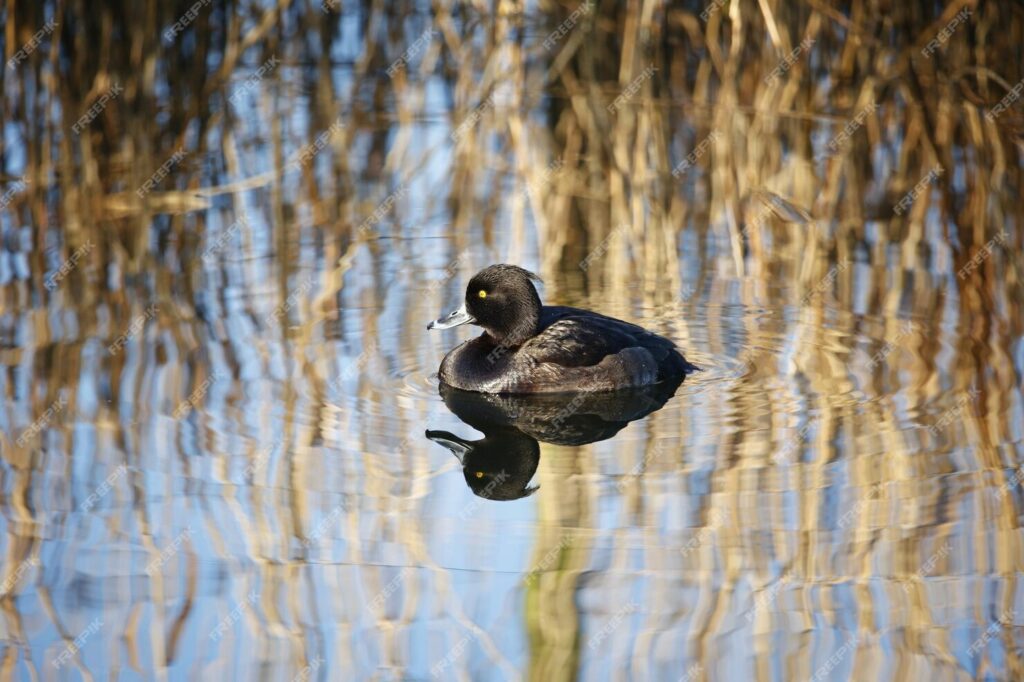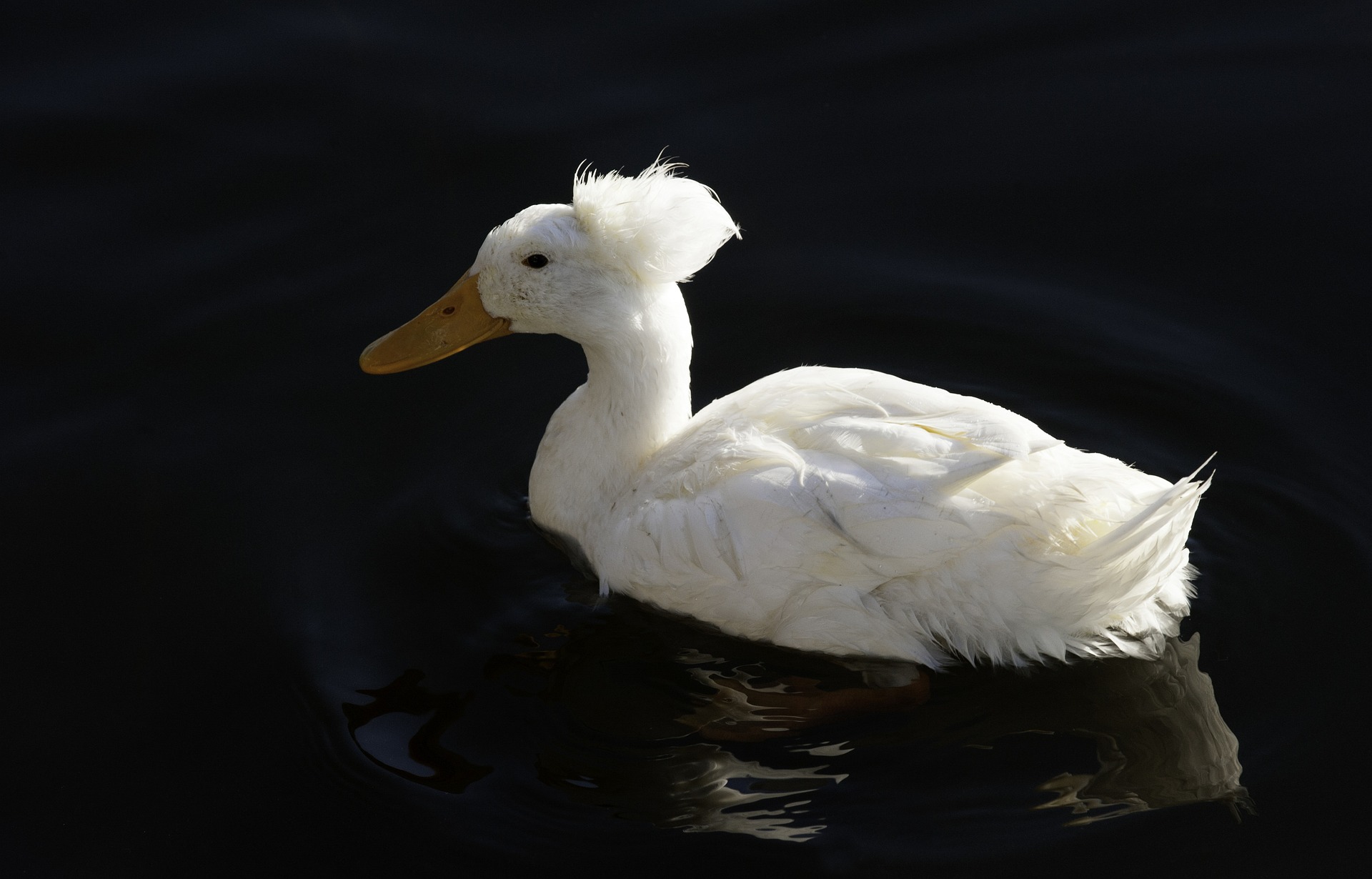Ducks are delightful and charming waterfowl that have captured the hearts of bird enthusiasts and hobbyists around the world. Among the various duck breeds, the crested duck stands out with its unique appearance and captivating personality. In this comprehensive guide, we’ll delve into the history, characteristics, and care requirements of crested ducks, shedding light on why they make fantastic additions to any flock.
You may also want to read about the best duck feed.
A Brief History of Crested Ducks
Crested ducks, also known simply as “Crested Ducks,” are a distinct breed that originated in Europe. Their exact lineage is a subject of debate among poultry historians, but they are believed to have been selectively bred from various duck breeds in the 17th century.
The defining feature of crested ducks is their prominent crest, a tuft of feathers atop their heads, which is the result of a genetic mutation. This mutation was intentionally propagated by breeders who found the crest to be a charming and attractive trait.
Crested ducks have been a popular choice among breeders and poultry enthusiasts for centuries due to their unique appearance and friendly demeanor. They are not only prized for their striking looks but also for their ability to lay eggs and provide meat, making them a valuable addition to farms and homesteads.

Characteristics of Crested Ducks
1. Unique Appearance
The most striking feature of crested ducks is, of course, their crests. The crest is a tuft of feathers that grows on top of their heads and gives them an endearing and somewhat comical appearance. This distinguishing characteristic is a result of a genetic mutation, and not all crested ducks will have equally prominent crests.
Crested ducks come in various color variations, including white, black, blue, and fawn. Their feathers can be solid-colored or have distinct patterns, adding to their visual appeal.
2. Size and Build
Crested ducks are generally medium-sized birds. They typically weigh between 5 to 6 pounds (2.3 to 2.7 kilograms) when fully grown, making them suitable for both egg production and meat purposes. Their bodies are compact and well-proportioned, with a gentle curve from neck to tail.
3. Temperament
One of the most endearing qualities of crested ducks is their friendly and docile temperament. They are known for being sociable and are often described as calm and easygoing. This makes them an excellent choice for those new to duck keeping or looking for pets that are comfortable around people.
4. Egg Production
Crested ducks are prolific egg layers, making them a valuable addition to any flock. On average, a crested duck can lay between 150 to 200 eggs per year, with some individuals even surpassing these numbers. Their eggs are typically white or off-white and are similar in size to chicken eggs.
5. Lifespan
With proper care, crested ducks can live for 8 to 12 years or even longer. Providing them with a safe and comfortable environment, a balanced diet, and regular veterinary check-ups can help ensure a long and healthy life for your feathered friends.
Crested Ducks’ Care Requirements
Now that we’ve explored the history and characteristics of crested ducks, let’s delve into the essential care requirements for these charming waterfowl.

1. Housing
Crested ducks, like other duck breeds, require appropriate housing to protect them from the elements and potential predators. A duck house or coop should provide shelter from rain, wind, and extreme temperatures. Make sure it is well-ventilated to prevent humidity build-up, which can lead to respiratory issues.
Ensure that the coop has adequate bedding, such as straw or wood shavings, to keep the ducks dry and comfortable. Ducks are messy birds, so regular cleaning is essential to maintain a healthy environment.
Additionally, crested ducks enjoy access to a water source for swimming and foraging. A small pond or kiddie pool can serve as their swimming area, which they will thoroughly enjoy.
2. Diet and Nutrition
A balanced diet is crucial for the health and well-being of crested ducks. They are omnivorous birds, which means their diet should include a mix of grains, vegetables, and protein sources. You can feed them a commercial duck pellet or mix your own feed with ingredients like:
- Grains: Corn, wheat, and barley.
- Vegetables: Leafy greens, peas, and carrots.
- Protein: Insects, worms, and aquatic plants.
Fresh, clean water should always be available for drinking and swimming. Ducks tend to make a mess when they drink, so consider using a waterer designed for ducks to minimize spillage.
3. Social Interaction
Crested ducks are sociable creatures and thrive on social interaction. It’s a good idea to keep them in pairs or small groups to prevent loneliness and stress. If you plan to keep only one crested duck, be prepared to spend time with them regularly to provide companionship.
4. Health Care
Regular health checks are essential for crested ducks. Find a veterinarian who is experienced in treating poultry and have your ducks examined periodically. Vaccinations may be necessary to protect your ducks from common diseases.
Keep an eye on their overall condition, watch for any signs of illness, and address any issues promptly. Common health problems in ducks include respiratory infections, bumblefoot (a foot condition), and parasites.
5. Protection from Predators
Crested ducks are vulnerable to various predators, including foxes, raccoons, and birds of prey. Ensure their enclosure is secure with sturdy fencing and consider using hardware cloth to protect against burrowing predators. Lock them in their coop at night to keep them safe from nocturnal threats.
Conclusion
Crested ducks are not just a charming addition to your poultry flock; they are also hardy, productive, and friendly birds. With their unique appearance, sociable nature, and prolific egg-laying abilities, they have become a favorite among poultry enthusiasts and backyard farmers.
By providing proper care, a safe environment, and lots of love and attention, you can enjoy the companionship of these wonderful waterfowl for many years to come. Whether you’re a seasoned duck keeper or a beginner looking for a feathered friend, crested ducks are sure to bring joy and entertainment to your life. So, consider adding these delightful ducks to your flock, and embark on a rewarding journey into the world of crested ducks.


